
Assisting independent media and CSOs in enhancing the accessto reliable information on the European Union and EUenlargement on social media in Armenia
More info 31. 12. 2025
31. 12. 2025
The aim of the project is to provide access to reliable information about the European Union and its enlargement process in the Armenian social media environment.

iROZHLAS | 'Orbán is heading for electoral defeat and trying to win conservative votes,' says analyst
More info 30. 3. 2025
30. 3. 2025
Hungary is facing elections in a year's time and pre-election polls predict that Prime Minister Viktor Orbán and his Fidesz party could end up in opposition. "Orbán has the lowest support since 2010 and he realises it. With his actions against the opposition, LGBT and others, he is trying to keep the conservative core of his voters," said Oszkár Roginer-Hofmeister, a Hungarian analyst at the EUROPEUM Institute, in an interview with iROZHLAS.cz.
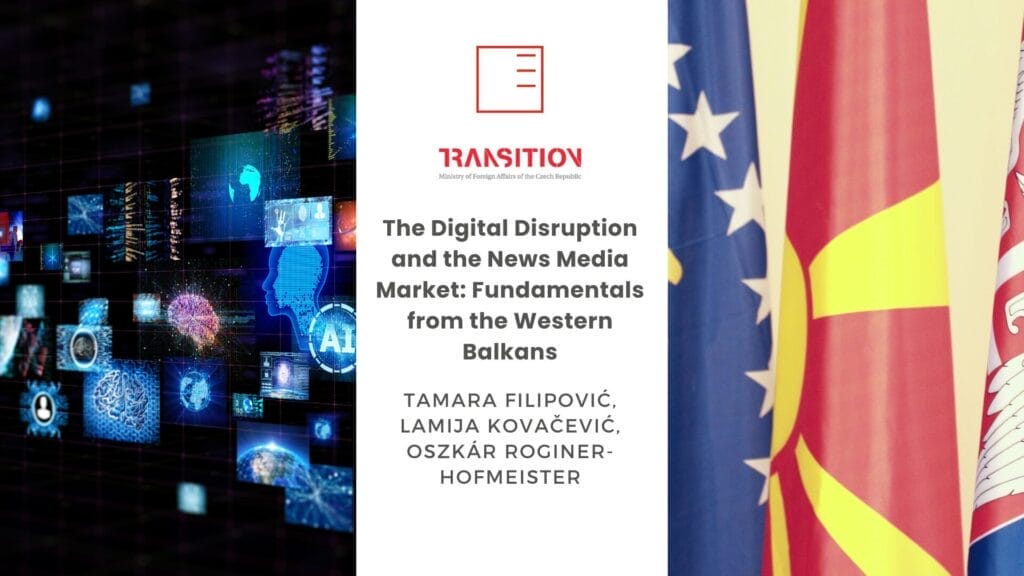
Handbook | The Digital Disruption and the News Media Market: Fundamentals from the Western Balkans
More info 2. 12. 2024
2. 12. 2024
The relevance of public discussions, progressive regulations and the development of skills to act and exist amid a digitally transitioning news media sector cannot be overstated. From the legislative and practical viewpoint of content manufacturing on one side, and access to reliable information on the other, challenges brought by the digital disruption in the news media sector are a burning issue for all stakeholders. This handbook provides an insight into the state-of-play in Western Balkans in relation to (in)compatibility with the EU values and media standards in an emerging, but still largely unregulated, news market. Writes Tamara Filipović, Lamija Kovačević and Oszkár Roginer-Hofmeister.
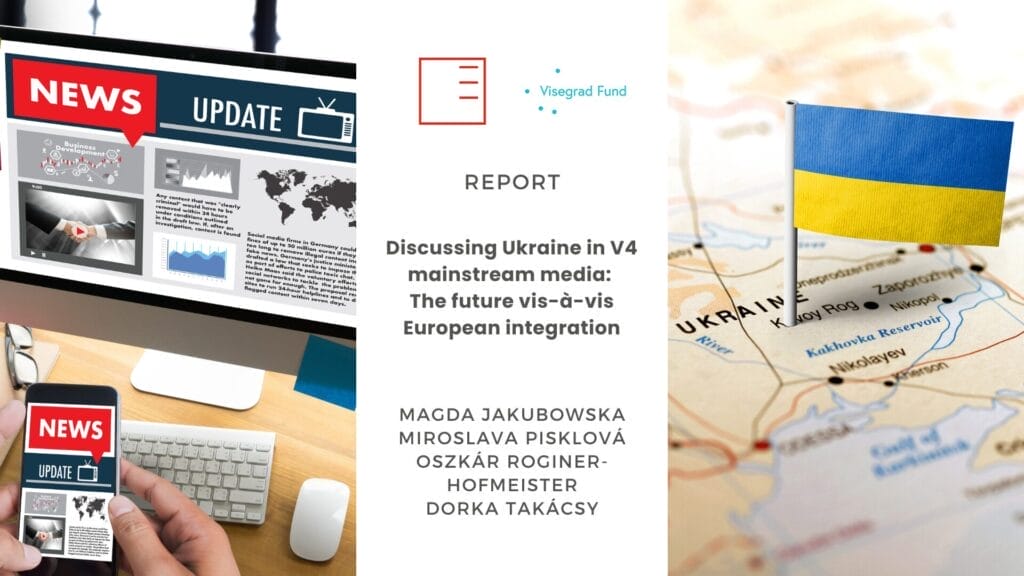
Report | Discussing Ukraine in V4 mainstream media
More info 30. 11. 2024
30. 11. 2024
Since the Russian invasion of Ukraine, media coverage of the country has increased significantly. Interpreting and commenting on events, putting them in the news and shaping the debate about Ukraine's future prospects in relation to European integration has thus become an important part of the responsibility of most mainstream media. However, as the war drags on, the V4 citizens' awareness of the conflict has diverged. At different times, some topics have been given more emphasis than others, making the quality of coverage often incomplete or unconvincing. Some countries emphasise the autonomy of reporting, which in turn allows for broad and in-depth coverage, while there are regimes that narrow the information and use the topic of war to produce stories for domestic purposes. In the final report on the EUROPEUM Institute project, Oszkár Roginer-Hofmeister and others write.
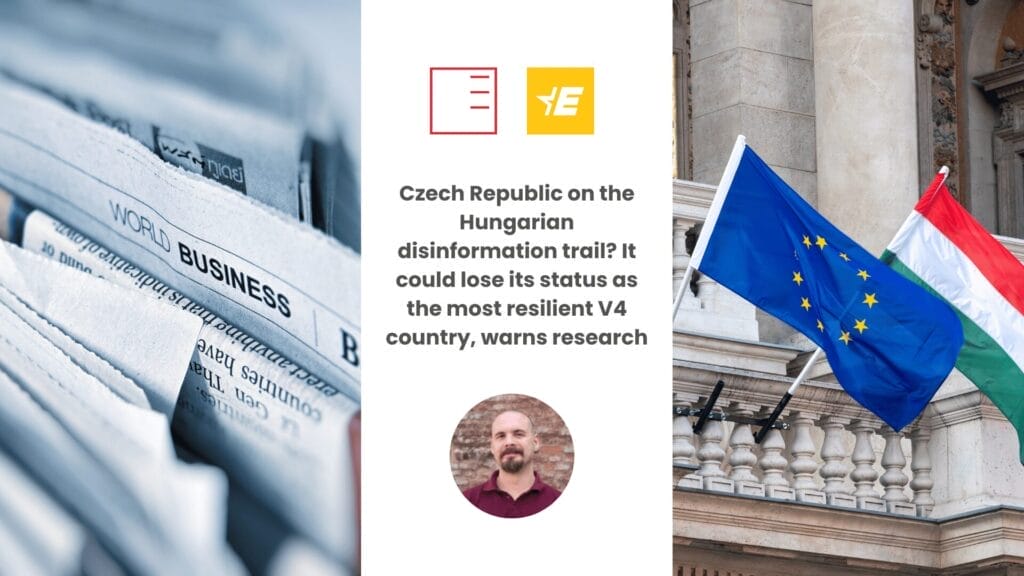
Euractiv.cz | Czech Republic on the Hungarian disinformation trail? It could lose its status as the most resilient V4 country, warns research
More info 29. 11. 2024
29. 11. 2024
The Czech Republic is in danger of following the Hungarian path in accepting disinformation, especially about the war in Ukraine. While Czech citizens mostly perceive Russia as the clear aggressor, research warns against changing the narrative. The upcoming elections and the possibility of Andrej Babiš's return to power could influence the direction of Czech politics and perceptions of international issues. Oszkár Roginer-Hofmeister, project coordinator at EUROPEUM Institute, commented for Euractiv.cz
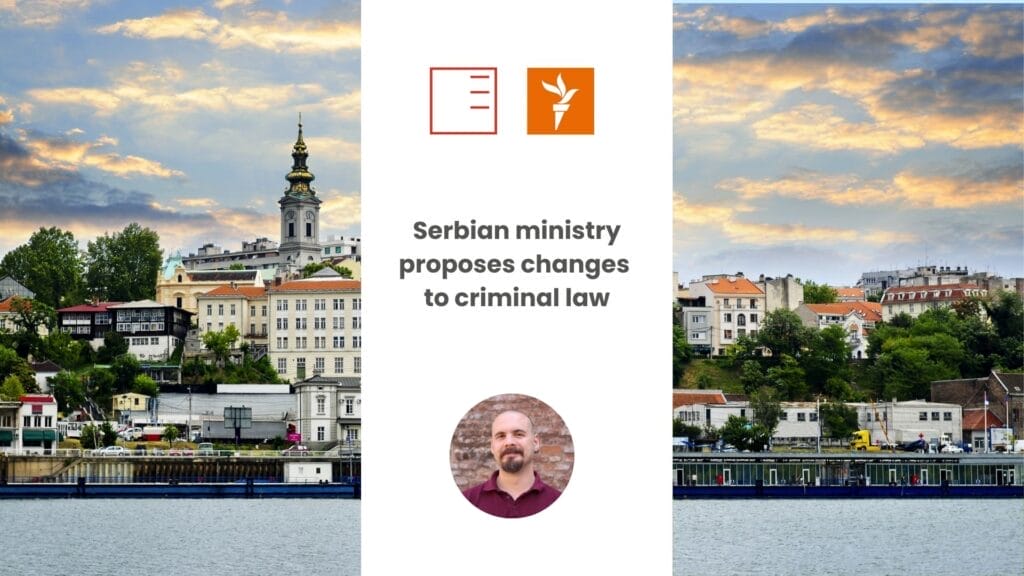
Radio Slobodna Evropa | Serbian ministry proposes changes to criminal law
More info 24. 10. 2024
24. 10. 2024
Opposition activists and critics of the Serbian authorities have read with concern the draft revision of the Criminal Code prepared by the local Ministry of Justice. This proposes, among other things, to introduce new penalties for "Publication of material used for the investigation of the commission of criminal activities" and also stipulates that if a person accesses the material using information technology, he or she can be punished by imprisonment for up to one year. Oszkár Roginer-Hofmeister, project manager of the EUROPEUM Institute, commented on the text for Radio Slobodna Evropa.
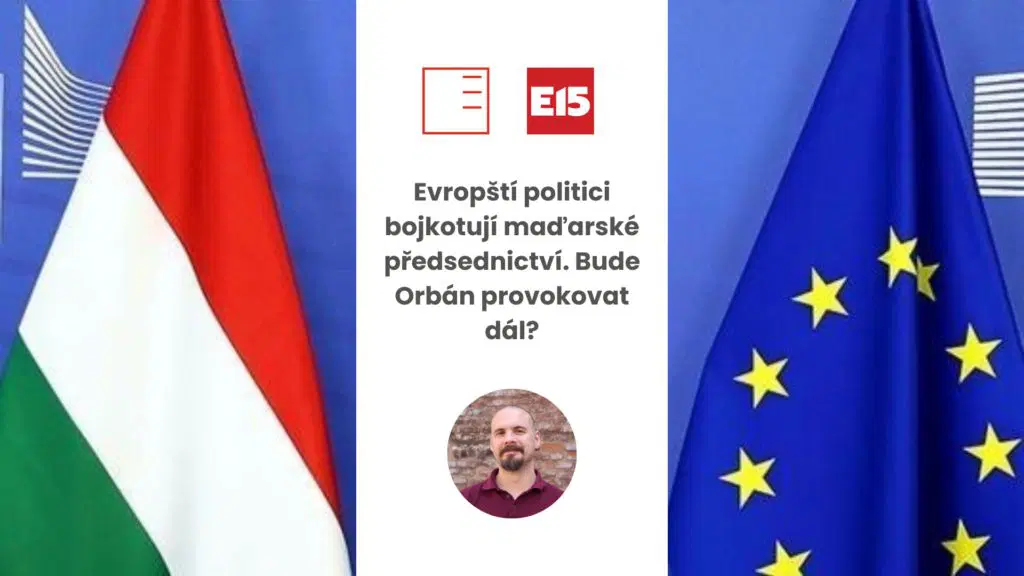
e15 | European politicians boycott Hungarian presidency. Will Orbán continue to provoke?
More info 24. 7. 2024
24. 7. 2024
Hungarian Prime Minister Viktor Orbán took over the EU Council presidency less than a month ago, but he has already managed to provoke the EU institutions and most member states with his unauthorized "peace" mission to Russia and China. During this mission, he presented himself as a representative of the European Union, despite having no authority to do so. European politicians have responded to this situation with initial retaliatory measures. How will Viktor Orbán proceed? What strategies and tactics might the Hungarian Prime Minister use during his presidency? Oszkár Roginer-Hofmeister, a research fellow at EUROPEUM Institute, commented on this for e15.
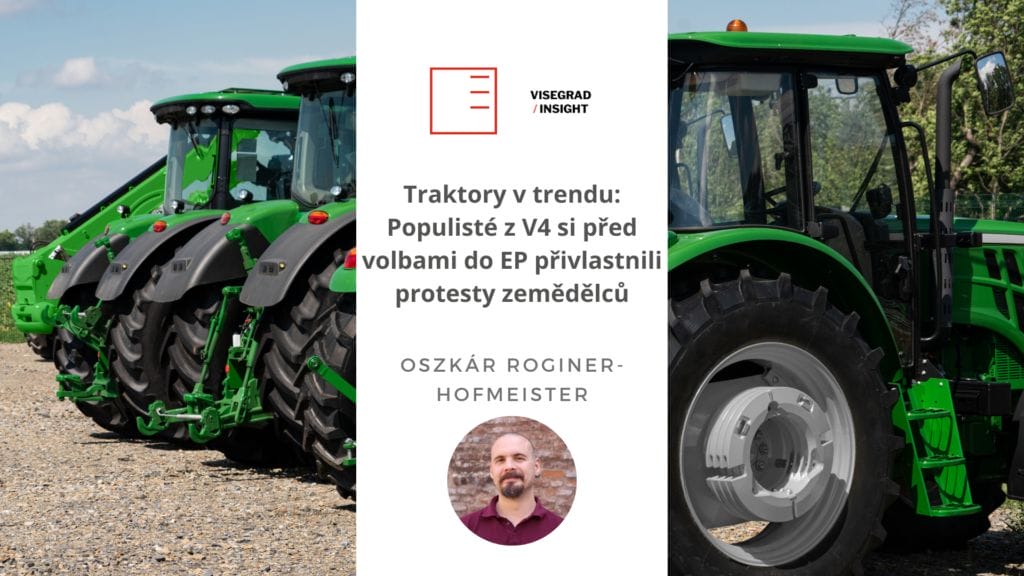
Visegrad/Insight | Tractors Trending: V4 Populists Appropriate the Farmers’ Protests Ahead of the EP Elections
More info 14. 3. 2024
14. 3. 2024
The populist camps in the Visegrad Four countries have used the farmers' protests in their populist campaigns for the European Parliament elections in June. A fundamental change to the last EU elections in 2019 is visible in the politicians' messages towards the people, with social media taking over the classic platforms such as television, press or radio. Project Manager of Global Europe programme at EUROPEUM Institute, Oszkár Roginer-Hofmeister, wrote an article on this topic for Visegrad/Insight.
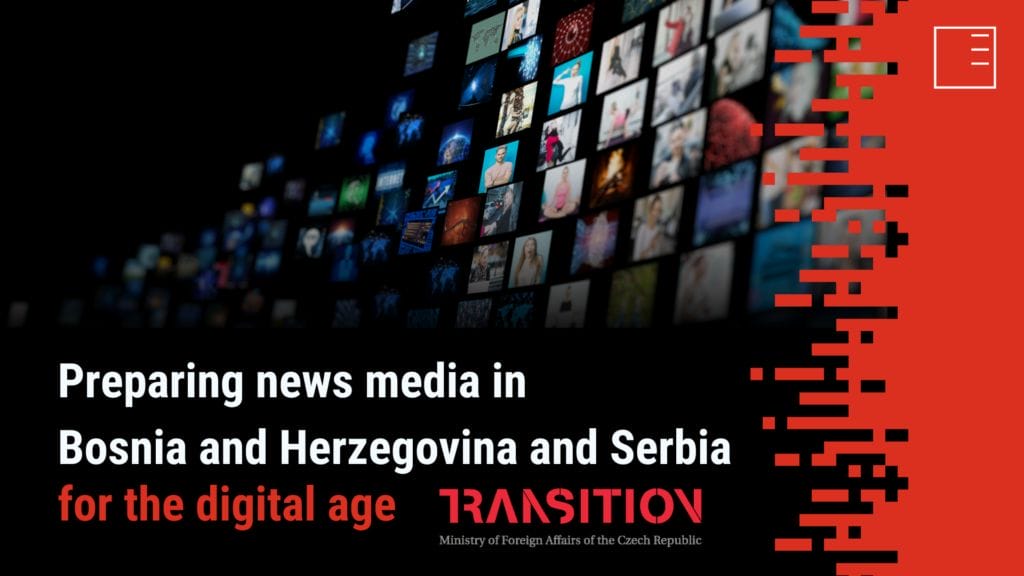
Preparing news media in Bosnia and Herzegovina and Serbia for the digital age
More info 14. 3. 2024
14. 3. 2024
The project aims to equip civil society organisations in Bosnia and Herzegovina and Serbia with comprehensive knowledge of media pluralism, media freedoms, and access to information necessary in the digital transition of the news media sector.
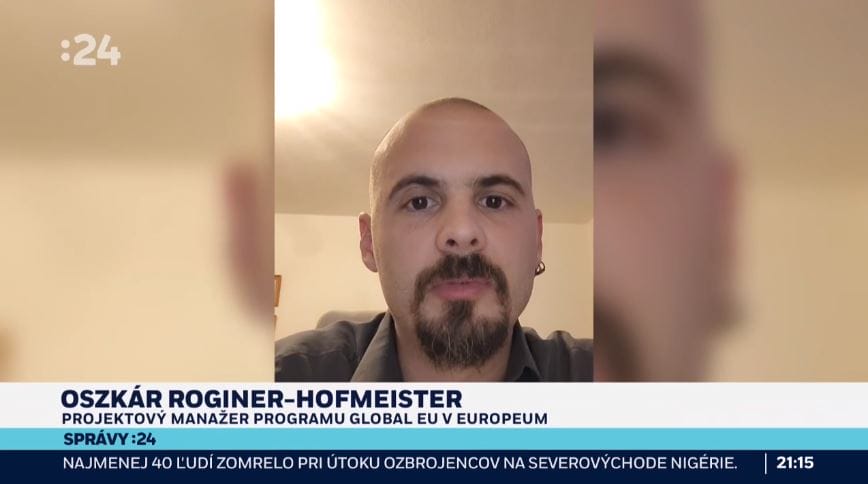
RTVS | Serbia prepares for early election
More info 1. 11. 2023
1. 11. 2023
Because of the current political situation in Serbia, there will be early election in December. Will they change anything? Our research fellow Oszkár Roginer-Hofmeister has commented on the issue in an interview with RTVS.

Discussing Ukraine in V4 mainstream media: The future vis-à-vis European integration
More info 22. 5. 2023
22. 5. 2023
The project assesses the production, distribution and consumption of news on Ukraine’s future vis-a-vis European integration by the V4 mainstream media. The aim is to designate both dominant and marginalized narratives, while also analyzing their impact via focus groups. The findings will be presented to stakeholders in order to improve reporting and increase the audiences’ access to information.
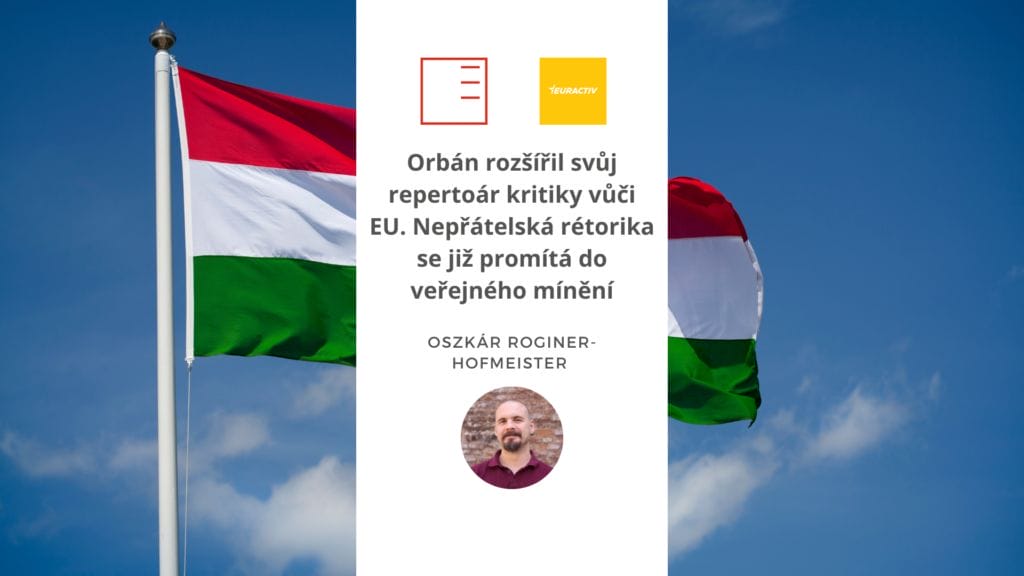
Euractiv: Orbán expanded his repertoire of criticism of the EU. The hostile rhetoric is already being reflected in public opinion
More info 16. 2. 2023
16. 2. 2023
About what kind of policy is Victor Orbán leadinng towards European Union and his upcoming annual speach, wrote for Euractiv Oszkár Roginer, Global EU project manager from the EUROPEUM Institute.